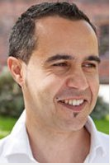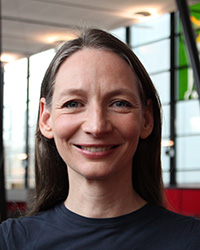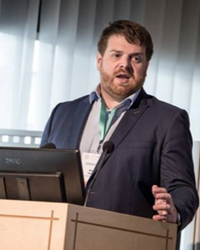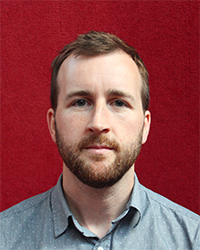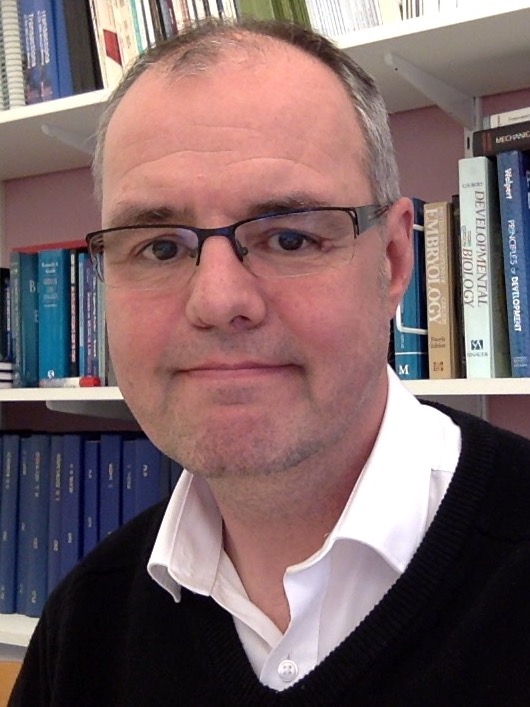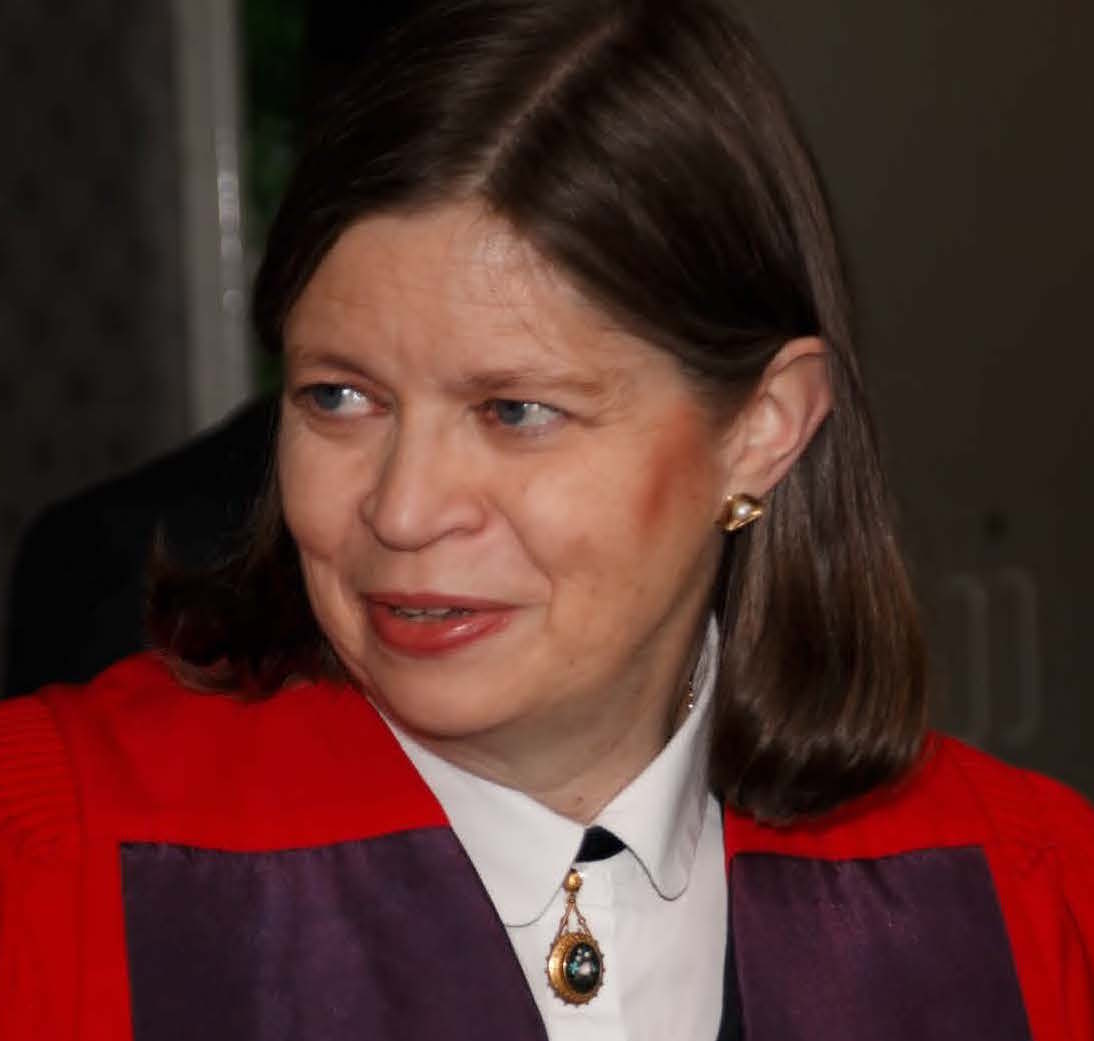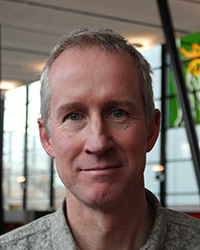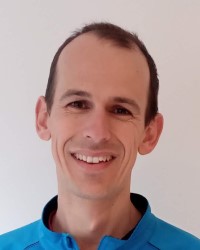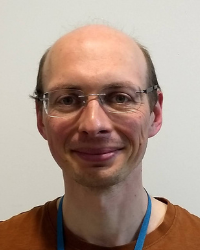Study options
- Starting in
- September 2025
- Location
- Whitechapel
- Fees
- Home: £10,350
Overseas: £19,000
EU/EEA/Swiss students
What you'll study
You will receive advanced, multi-disciplinary training in the scientific principles and clinical applications of regenerative medicine. The programme is delivered jointly by Queen Mary University of London's Faculty of Medicine and Dentistry and the School of Engineering and Materials Science.
Through the taught modules, you will develop a strong scientific foundation in the biology of stem cells and regeneration, as well as the fundamental principles of biomaterials, tissue engineering and cellular reprogramming.
Students* gave this programme a score of 94% for aspects of teaching and learning, and 93% for academic, health and IT support.
*Students who completed the Postgraduate Taught Experience Survey (PTES) 2024
Queen Mary University of London's Faculty of Medicine and Dentistry is comprised of two renowned and prestigious teaching hospitals: St Bartholomew’s and The Royal London. Both continue to make an outstanding contribution to modern medicine and together have been consistently ranked among the top five universities in the UK for medicine.
Structure
- Eight taught modules
Compulsory/Core modules
This module combines lecture-based teaching with workshops to provide you with a foundation in the cellular and molecular basis of regeneration. You will learn about topics including cellular senescence and organismal ageing, wound healing, hormonal regulation of regeneration, immunity, organ regeneration, epigenetics and hot topics in regeneration. You also will develop transferrable skills including critical reading, presentation and communication skills. Finally, you will participate in workshops to enhance what you learn in lectures.
You will develop a comprehensive foundation in stem cell biology, including the biological mechanisms by which stem cells regulate the processes of self-renewal and differentiation. You also will learn about the complex networks that regulate stem cells, permitting critical evaluation of how deregulation can lead to disease. Topics covered will include: basic concepts of stem cell biology, developmental origin of stem cells, comparing/contrasting different types of stem cells, biological regulation of stem cells, and the role of stem cells in cancer biology. In addition, you will develop key skills including critical analysis of scientific literature, interpretation of experimental design, scientific writing, and design of presentations.
This module will provide training in the fundamental principles of biomaterial science and therapeutic applications in tissue engineering. It will cover the key types, properties, synthesis, and testing of biomaterials, as well as how the structure and function of materials impact complex cellular responses and tissue regeneration. The module will present current methods in fabrication of biomaterials into scaffolds for tissue engineering, strategies for cultivation living tissue equivalents, and critical analysis of specific applications in regenerative medicine. Throughout the module students will develop skills in critical thinking, experimental design, oral and written communication, and collaborative work.
This module combines lecture-based teaching with practicals and workshops which provides you with a foundation in research methodology, as well as skills in thinking, writing and oral communication. You will study topics ranging from the formulation of hypotheses based on critical analysis and evaluation of scientific literature to experimental design and core laboratory methodologies used in biomedical research. We will also will discuss safety and ethical concerns relating to research, as well as professional conduct and careers in regenerative medicine. Throughout the module, you will develop practical skills including statistical analysis, dissemination of information through oral and written presentation, and public engagement.
Elective modules
This module is an extensive study of the cellular and molecular biology substrates of neurodegenerative diseases such as Parkinson's disease, amyotrophic lateral sclerosis and the dementias, including Alzheimer's disease. You will be given insight into the role of biomarkers for patient stratification and for prognosis of the evolution of the disease. You will critically discuss clinical trials in neurodegenerative disease.
You will develop in depth knowledge of the role of tissue-specific stem cells during tissue homeostasis and wound-healing, as well as current and future applications in regenerative medicine. The module will cover stem cells present in tissues derived from each of the three primary germ cell layer (ectoderm, endoderm & mesoderm). You will also examine cutting-edge experimental techniques that are used to evaluate adult stem cells by interpreting data from primary research papers. Throughout the module you will develop a variety of skills including critical analysis of scientific literature, interpretation of experimental design, evaluation of statistical analysis, and design of presentations. Your transferrable skills in critical thinking, organisation, writing, and oral communication will also be enhanced.
This module will introduce you to the different types of pluripotent stem cells which are used for research and in therapeutics. The emphasis will be on induced pluripotent stem cells, where the focus will be on generation, verification, and applications of these cells. Additionally, you will learn about techniques that are used for genome engineering, which will be integrated in applications of induced pluripotent stem cells.
Assessment
- Assessments will include exams, written essays, group projects, research proposals and presentations
—This programme provided me with excellent knowledge on the ever-evolving field of Regenerative Medicine. The professors did an amazing job at teaching about the theoretical aspects of fields such as stem cell research and tissue engineering techniques, but also at how these fields are being investigated in everyday life as ways to better understand and treat various diseases.
Francisca Soares, Regenerative Medicine MSc, 2021
Teaching
You will experience many different teaching methods, including lectures, tutorials, guest seminars, presentations, discussion, practical classes and demonstrations. You will have the opportunity to work with and learn from your peers, as collaborative group projects will be a significant component.
Where you'll learn
Facilities
- Blizard Institute facilities, including light microscopy, flow cytometry, high-content screening and biological services
- Medical School resources such as genomic and proteomic analysis, histopathology and statistical analysis
- The NanoVision Centre for scanning probe microscopy and mechanical testing and spectroscopy systems
- The CREATE Lab core facility, dedicated to biofabrication of advanced 3D tissues and microfluidic devices
- The multidisciplinary Centre for Predictive in vitro Models
About the Institute
Blizard Institute
The Blizard Institute is the largest institute of the Faculty of Medicine and Dentistry. Our research and education span broad areas of modern biomedicine, with particular expertise in cell biology, genomics, immunology, neuroscience, primary care, population health and trauma sciences.
Our research puts Queen Mary joint seventh in the UK (REF 2021). We work closely with linked NHS hospital trusts which means that the School’s research and teaching is informed by an exceptionally wide-ranging and stimulating clinical environment.
Barts Health NHS Trust is home to:
- One of the capital's leading trauma and emergency care centres in the UK (approaching 1,000 attendances daily)
- Europe’s largest Trauma Centre
- Europe’s busiest Heart Centre.
Queen Mary University is also part of the prestigious Russell Group - a body of leading UK universities dedicated to research and teaching excellence.
Career paths
Alumni of this programme have gone on to become research scientists in the academic or industry sectors. Other graduates have pursued related careers, including science publication, clinical trials, project management, and marketing.
Graduates have enrolled in PhD studies or gone on to medical school. Some students have returned to their clinical work/study and others are pursuing careers as scientific investigators.
Programme alumni have the opportunity to remain connected via an official networking group on LinkedIn.
- 96% of Blizard postgraduate-taught students are in employment or further study (2020/21)
- 98% of Blizard postgraduate-taught students are in highly skilled work or study (2020/21)
- £47k is the median UK salary of Blizard Institute postgraduate-taught graduates (2020/21). 87% earn above this.
Fees and funding
Full-time study
September 2025 | 9 months
- Home: £10,350
- Overseas: £19,000
EU/EEA/Swiss students
Unconditional deposit
Home: Not applicable
Overseas: £2000
Information about deposits
Part-time study
January 2026 | 2 years
- Home: £5,200
- Overseas: £9,500
EU/EEA/Swiss students
Unconditional deposit
Home: Not applicable
Overseas: £2000
Information about deposits
Full-time study
January 2026 | 1 year
- Home: £10,350
- Overseas: £19,000
EU/EEA/Swiss students
Unconditional deposit
Home: Not applicable
Overseas: £2000
Information about deposits
Part-time study
September 2025 | 21 months
- Home: £5,200
- Overseas: £9,500
EU/EEA/Swiss students
Unconditional deposit
Home: Not applicable
Overseas: £2000
Information about deposits
Funding
There are a number of ways you can fund your postgraduate degree.
- Scholarships and bursaries
- Postgraduate loans (UK students)
- Country-specific scholarships for international students
Our Advice and Counselling service offers specialist support on financial issues, which you can access as soon as you apply for a place at Queen Mary. Before you apply, you can access our funding guides and advice on managing your money:
Entry requirements
UK
Degree requirements
A 2:2 or above at undergraduate level in a relevant subject such as Biological Sciences, Physical Sciences, Medicine or Dentistry (non-UK medical degrees marked on a grading scale must be equivalent to a UK 2:2 degree).
Other routes
Applicants with relevant degrees below this level will be considered on an individual basis if there is strong evidence of suitable professional experience.
Find out more about how to apply for our postgraduate taught courses.
International
English language requirements
The English language requirements for our programmes are indicated by English bands, and therefore the specific test and score acceptable is based on the band assigned to the academic department within which your chosen course of study is administered. Note that for some academic departments there are programmes with non-standard English language requirements.
The English Language requirements for entry to postgraduate taught and research programmes in the Blizard Institute falls within the following English band:
Band 4: IELTS (Academic) minimum score 6.5 overall with 6.0 in each of Writing, Listening, Reading and Speaking
Please note, there are some postgraduate programmes with non-standard English language requirements in this Institute.
We accept a range of English tests and qualifications categorised in our English bands for you to demonstrate your level of English Language proficiency. See all accepted English tests that we deem equivalent to these IELTS scores.
Visas and immigration
Find out how to apply for a student visa.


